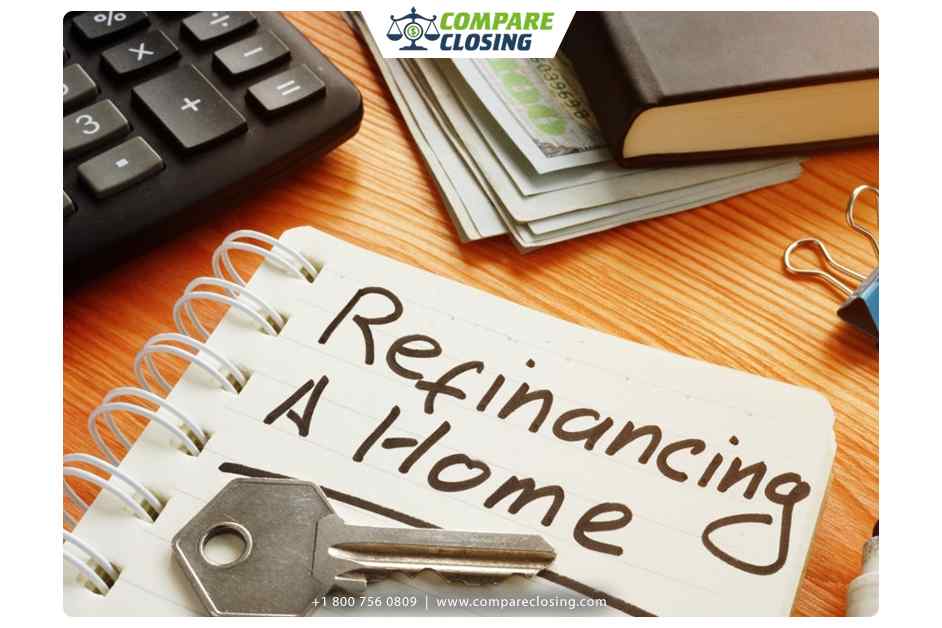Table of Contents
- What Are Netting Escrows & How Does It Work?: The Best Guide - January 2, 2024
- The Secret About Prescriptive Easement: Top Guide 1 Must Know - December 4, 2023
- About Home Equity Loans In Texas And How Can One Obtain It - November 27, 2023
If you are having trouble making your mortgage payment each month, then to manage your money more effectively and help lower your interest rate a refinance can be beneficial, you can get private mortgage insurance or take cash out of your equity.
If you’ve already refinanced your home loan many people have the question as to how often can you refinance? We’ll take a look at how often can you refinance and guide you in deciding whether doing so more than once is the best decision.
How Often can you Refinance your Mortgage?
Actually, there is no limit on the number of times you can refinance your home loan. Mortgage lenders, however, do set a few rules that pronounce the frequency of refinancing by loan type.
You need to have built up equity so you can take cash out against it. Compared to the last time you took a cash-out to refinance this time you might have less equity in your home.
Every time you use up your equity, you reduce the percentage of your home loan that you can use.
You’ll need to do your calculations and figure out exactly how much equity you have before you refinance because most lenders won’t allow you to take out 100%.
For example -Suppose you have paid off $50,000 of your home loan and have a remaining principal of $100,000 left on your mortgage.
And you want $30,000 worth of repairs, hence you go for a cash-out refinance. So your new loan principal will be $130,000 and you take away $30,000.
Then after 2 years and let us assume you now require $20,000 to pay off some debts. So in these 2 years after your refinance, you could pay only $2,000 off your principal after accounting for interest.
Though your loan balance now is $128,000, you will only have $22,000 worth of equity in your home. Most lenders allow you to refinance only 80% – 90% of your loan value.
If in a cash-out refinance you withdraw $20,000, you’re using over 90% of your equity. This means that you’ll face trouble in finding a lender who’s willing to service your refinance.
Even if you find a lender, you probably might not get the best possible interest rate, because you’ll pay an interest of thousands of dollars more by the time you pay off your home loan.
Should You Refinance Your Mortgage More Than Once?
There could be a number of reasons why you would want another refinance. Here are some circumstances when it could be to your benefit.
Taking A Lower Interest Rate
Check if the interest rates lowered since you got your refinance. You might want to take advantage of refinancing again. If you’re able to lower your interest rate without changing the term of your loan then you can almost always save money.
A small change in your interest rate could save you hundreds, maybe even thousands, of dollars. For example, If you currently have a 20-year mortgage loan with $150,000 left on your principal and you are paying an interest rate of 4.5%.
You can benefit to refinance your loan with the same terms but with an interest rate of 4% APR. If you don’t refinance, you pay an interest of $77,753.84 at the time of your loan maturity.
If you take the refinance, you pay total interest of $68,152.95. You’ll save over $9,601 in interest by just lowering your rate by a mere 0.5%.
Increasing Your Loan Term
Even if you had refinanced earlier, but if you’re having trouble making payments you may need to increase your loan’s term again.
Instead of foreclosure even a second or third refinance is a better option for homeowners and lenders.
Though you need to remember that you invariably increase the amount you pay in interest, each time you refinance your loan to a longer-term.
How to Avoid Mortgage Insurance
if your down payment was less than 20% on a conventional loan then you were required to buy private mortgage insurance (PMI).
If you default on your loan then the
PMI is a special type of insurance that protects your lender in the event of you defaulting. As a homeowner PMI does not offer you any protection yet as a condition of your loan you must pay the recurring premiums.
Once you reach 20% equity in your home then it is possible to refinance and remove PMI. Even if you’ve refinanced your loan’s interest rate or term in the past it is a great way to save money over time.
When you reach 20% equity you may want to refinance to a conventional loan from an FHA loan. In an FHA loan, you must pay for insurance throughout the duration of the loan.
But, if you are refinancing from an FHA loan to a conventional loan, then you won’t have to pay for your lender’s insurance as long as you have a minimum of 20% equity in your home.
Things To Consider When Refinancing Multiple Times
Even if the benefits seem very attractive refinancing more than once is not for everyone. Before you refinance again take a look at a few things you need to consider
You would Need To Pay Closing Costs Again
Every time you refinance, you would need to pay closing costs. Some common closing costs you’ll see when you refinance more than once could be:
- Application fees: This is charged by your lender when you request a refinance. whether or not you actually receive a refinance yet you need to pay for your application fee.
- Appraisal fees: Even if you have had an appraisal recently, your lender might require one before you can refinance. This is just to ensure that the lender isn’t loaning out excess money.
- Inspection fees: Before you can refinance you might need to get an inspection. Some states have specific requirements criteria of inspections each time you refinance, while others only require inspections every 5 – 10 years.
- Attorney review fees and closing fees: To finalize your loan and review it in some states you need an attorney before closing. Attorney fees could vary widely from state to state.
- Title search and insurance: When you are refinancing with a new lender, they need to know that you’re the sole owner who has rights to your property. Here too you need to pay title insurance and search fees again when you work with a new lender.
You can usually expect to pay Closing costs of 2% – 3% of your total loan amount though it varies by location. This would eat up on your saving – especially if this isn’t your first refinance.
You Still Need To Meet Your Lender’s Standards
When you refinance you must meet your lender’s standards just like when you buy a home. You need to identify if you are having more debt, less income, or a lower credit score now compared to when you last refinanced because you may face difficulty while getting approved. before you apply it is advisable to know your debt to income ratio, your current equity, and the credit score.
You Might Face Prepayment Penalties
Some lenders have clauses to penalize you if you pay off your loan before your term ends. For example, all that you saved in interest you may need to pay as a penalty if you pay off your loan within 5 years of your term.
Read the terms of your last refinance and see if your loan has an early repayment penalty before you apply for a new one.
Conclusion
There’s no limit on how often can you refinance your Mortgage. Nonetheless, individual lenders may have standards that limit your practical ability to refinance.
To qualify to take cash out against your loan remember you need to have equity. As most lenders will only approve you for 80% – 90% of your loan’s value, it can be difficult to get more than one cash-out to refinance.
Amanda Byford
Amanda Byford has bought and sold many houses in the past fifteen years and is actively managing an income property portfolio consisting of multi-family properties. During the buying and selling of these properties, she has gone through several different mortgage loan transactions. This experience and knowledge have helped her develop an avenue to guide consumers to their best available option by comparing lenders through the Compare Closing business.






Hello there! This blog post couldn’t be written any better!
Reading through this post reminds me of my previous roommate!
He always kept preaching about this. I most certainly will send this information to him.
Fairly certain he’s going to have a great read.
Many thanks for sharing!